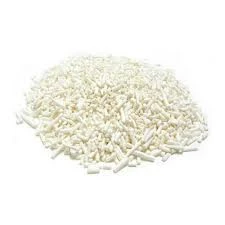
Exploring the Role of Emulsifiers in Food Production and Formulation Techniques
Emulsifiers The Unsung Heroes of Food and Industry
Emulsifiers are a crucial yet often overlooked component in both the food industry and other sectors such as cosmetics and pharmaceuticals. By definition, an emulsifier is a substance that helps stabilize mixtures of two or more immiscible liquids—typically oil and water. These agents play a vital role in creating smooth, homogenous products that enhance texture, flavor, and shelf-life.
One of the most common applications of emulsifiers is in food preparation. Many everyday products, from mayonnaise to salad dressings and sauces, rely on emulsifiers to maintain their consistency. Without emulsifiers, oil and water would separate, leading to an unappealing and ineffective product. Common food emulsifiers include lecithin, which is derived from egg yolks and soybeans, and mono- and diglycerides, which are used widely in commercial baking. These substances not only help in maintaining texture but also improve the mouthfeel of food products, providing consumers with a more enjoyable eating experience.
In the cosmetic industry, emulsifiers serve similar functions, allowing for the blending of oily and watery components in creams, lotions, and other personal care products. For example, emulsifiers help create stable emulsions in moisturizers, ensuring that the product delivers its intended benefits effectively. An emulsion that breaks apart may result in a greasy texture or an ineffective formulation, which can lead to customer dissatisfaction.
emulsifiers

The role of emulsifiers extends beyond just food and cosmetics; they are also key in pharmaceuticals. For medicines that require the combination of oil and water, emulsifiers ensure stable and effective drug delivery systems. They can help improve the solubility of active ingredients, thereby enhancing bioavailability and therapeutic effectiveness. This is especially important in the formulation of various oral and injectable medications.
Despite their importance, the use of emulsifiers has sparked discussions regarding health and safety. Some emulsifiers have been linked to potential adverse effects, raising questions among consumers about their safety in food products. However, regulatory agencies, such as the FDA and EFSA, monitor and evaluate the safety of emulsifiers, ensuring that only approved substances are used in food and pharmaceuticals.
In conclusion, emulsifiers are essential ingredients that serve as the backbone of many products in the food, cosmetic, and pharmaceutical industries. They enhance the quality and stability of emulsions, ensuring that oil and water blend harmoniously. As consumers become more informed about food ingredients and their implications, the need for transparency and the safe use of emulsifiers will continue to be a topic of importance. Understanding the crucial role that emulsifiers play helps appreciate the complexity and craftsmanship involved in creating everyday products that we often take for granted.
-
The Safety Challenges of Ammonium Nitrate FertilizerNewsJun.26,2025
-
The Critical Role of Mining ChemicalsNewsJun.26,2025
-
Shelf Life of Glacial Acetic Acid Food GradeNewsJun.26,2025
-
Enhancing PVC Longevity with 1,2,3-Benzotriazole InnovationsNewsJun.26,2025
-
China’s Dominance in Food Additive ProductionNewsJun.26,2025
-
Can Aluminum Hydroxide Replace More Toxic Alternatives?NewsJun.26,2025
-
PE and PP Plastics with Benzotriazole AdditivesNewsJun.12,2025
Hebei Tenger Chemical Technology Co., Ltd. focuses on the chemical industry and is committed to the export service of chemical raw materials.
-

view more DiethanolisopropanolamineIn the ever-growing field of chemical solutions, diethanolisopropanolamine (DEIPA) stands out as a versatile and important compound. Due to its unique chemical structure and properties, DEIPA is of interest to various industries including construction, personal care, and agriculture. -

view more TriisopropanolamineTriisopropanolamine (TIPA) alkanol amine substance, is a kind of alcohol amine compound with amino and alcohol hydroxyl, and because of its molecules contains both amino and hydroxyl. -

view more Tetramethyl Thiuram DisulfideTetramethyl thiuram disulfide, also known as TMTD, is a white to light-yellow powder with a distinct sulfur-like odor. It is soluble in organic solvents such as benzene, acetone, and ethyl acetate, making it highly versatile for use in different formulations. TMTD is known for its excellent vulcanization acceleration properties, which makes it a key ingredient in the production of rubber products. Additionally, it acts as an effective fungicide and bactericide, making it valuable in agricultural applications. Its high purity and stability ensure consistent performance, making it a preferred choice for manufacturers across various industries.











